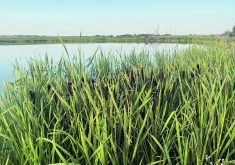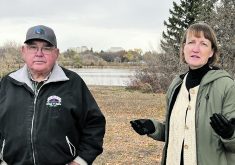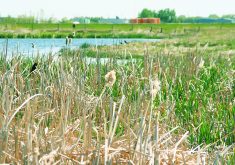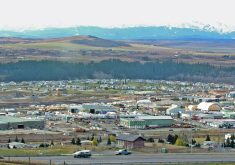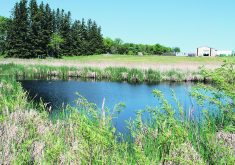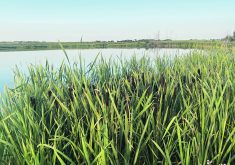Ducks Unlimited and other groups are pleased by new legislation to protect wetlands in Manitoba.
The bill, called the Sustainable Watersheds Act, will increase penalties for illegal drainage and provide financial incentives to farmers who adopt practices that restore wetlands, retain water and better manage riparian areas.
Scott Stephens, Ducks Unlimited Canada director of operations for the Prairies, called the legislation a balance of financial incentives and regulations. In other words, a balance between carrots and sticks.
“When you look at other jurisdictions, that’s been the most successful combination, is when you have both.”
Read Also

Using artificial intelligence in agriculture starts with the right data
Good data is critical as the agriculture sector increasingly adopts new AI technology to drive efficiency, sustainability and trust across all levels of the value chain.
In a news release, the province said the legislation, known as Bill 7, would prevent drainage of certain classes of wetlands.
“We are particularly keen on ensuring that seasonal, permanent and semi-permanent wetlands … are preserved and protected,” said Rochelle Squires, Manitoba’s minister of sustainable development. “That there’s not any drainage occurring on these wetlands.”
Squires added there could be “extreme” cases where a wetland may need drainage, but that would be an exceptional measure.
“If there are absolutely no other alternatives we will look at mitigating factors, possibly creating wetlands in other areas.”
Manitoba also intends to move forward with a form of the Alternative Land Use Services (ALUS) model, where landowners are compensated for ecological services that preserve things like water quality or natural habitats.
Since taking office in 2016, the Progressive Conservative government has talked about implementing an “ALUS type” program.
Municipalities and communities in Ontario, Saskatchewan and Alberta have established ALUS projects, but Prince Edward Island is the only jurisdiction in Canada to have a province-wide ALUS program.
Squires said Manitoba’s program, called Growing Outcomes in Watersheds (GROW), is a made in Manitoba version of ALUS.
Dan Mazier, Keystone Agricultural Producers president, supports the legislation and the approach.
“Farmers are uniquely positioned to do this, and with the help of GROW programming we can provide flood mitigation, carbon sequestration, nutrient capture and habitat protection.”
Besides KAP and Ducks Unlimited, the International Institute of Sustainable Development also offered public support for Bill 7.
The bill lays out the big picture of how wetlands and watersheds will be managed in Manitoba, but many details remain unknown, such as who will pay farmers for protecting and preserving wetlands and how much it will cost.
The funding could come from a number of sources, including government, municipalities, carbon tax revenue and possibly partnerships with non-government organizations.
As for payments to landowners, Squires said it’s premature to throw out an estimate of the annual cost.
For now, she’s focused on moving Bill 7 to the committee stage and getting input from farmers and the public.
Stephens said he told the province that DUC would bring money to the table if the legislation included incentives and regulations.
DUC got what it asked for, so Stephens is willing to compensate Manitoba landowners who restore wetlands or protect ephemeral wetlands, which are depressions that have water only in wet years.
“But payment rates and (that) sort of thing are yet to be worked out.”
DUC estimates that 70 percent of wetlands in Manitoba have been lost or degraded over the last 40 to 60 years. That includes 250,000 acres of wetlands in southwestern Manitoba.




